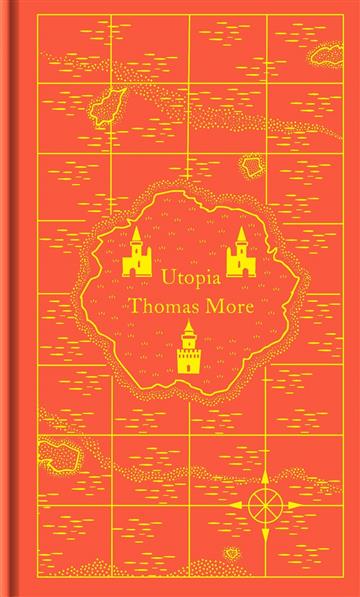

The Fool appears briefly in Hythloday's story about the Cardinal's dinner party. Furthermore, by describing King Utopus similarly to the founders of Britain, More suggests that these two places (one fictional, one real) are not so different in their origin stories. That King Utopus is the only named Utopian in the text is significant because it underscores More's project of portraying a world where individual accomplishment is insignificant compared to communal growth. He is the founder of the city, and More describes his development of Utopia in terms very similar to the founding of England and the mythological background of King Arthur. King Utopus is the only character in Utopia who is from Utopia and mentioned by name. The presence of the benevolent Cardinal would have helped defend More should anyone accuse him of contradicting or challenging the Church's influence. Many also speculate that the Cardinal appears as a gesture to More's respect for the Church, we he often criticizes throughout Utopia. The Cardinal is notably fair and able to bring together many different people for long, meaningful conversations. He was also a real person, serving as the former Chancellor to King Henry VIII (the same king that More served). Morton is a kind, generous, and thoughtful character. Cardinal John MortonĬardinal John Morton appears in Hythloday's story regarding his last visit to England. Most of the laws, institutions, and values passed down by Utopus remained in place 1760 years later, when Raphael visited.

1760 years before Hythloday's visit to Utopia, Utopus conquered the brutish people and separated the area into its own island by cutting through the narrow isthmus that connected Utopia to the mainland. The ancient conqueror who built the Utopian state. More rejects Hythloday's advice and learns his lesson the hard way. In discussing court politics, Hythloday is wiser than More, realizing that the fickle shifting views of a king's flattering advisers can make the court an unpleasant adventure for the well-intentioned honest adviser. Hythloday can seem very sensible at times, despite his ridiculous traits. He is an absolute fan of Utopia: he praises all of their customs, criticizing nothing. At the same time, Hythloday tends to be pretty dogmatic in his views. It's difficult for the other characters to get a word in edgewise. Hythloday is very wordy and he speaks in long sentences. Hythloday is the main character in Utopia and he is distinct and unique from the others. Vespucci was actually a sailor and discover (after whom America is named). Hythloday is a Portuguese man who sailed on the fourth voyage of Amerigo Vespucci. Unfortunately, the island does not exist. Raphael is the name of a Biblical angel but the name Hythloday means "peddler of nonsense." Hythloday brings good news of the ideal society, found on the island of Utopia. Though Giles and More are actual people, Hythloday is entirely fictional. Giles introduces More to Raphael Hythloday and Utopia is a narration of Raphael's words to Giles and More. In Utopia, Giles meets More when the Englishman travels to Flanders (present-day Belgium). Peter GilesĪ friend of the author, Giles was a printer and editor, also serving as the Clerk of Antwerp.

In the closing letter to Giles, More makes it clear that Utopia is a fictional place that does not actually exist. More is very clever and he makes several jokes and puns in attempts to be humorous. In the opening and closing letters to Peter Giles, More reveals aspects of his character. More does not do much speakingHythloday is the main speaker. In the opening letter to Peter Giles, More explains that he is writing a record of a conversation that he and Giles had with a man named Raphael Hythloday.


 0 kommentar(er)
0 kommentar(er)
